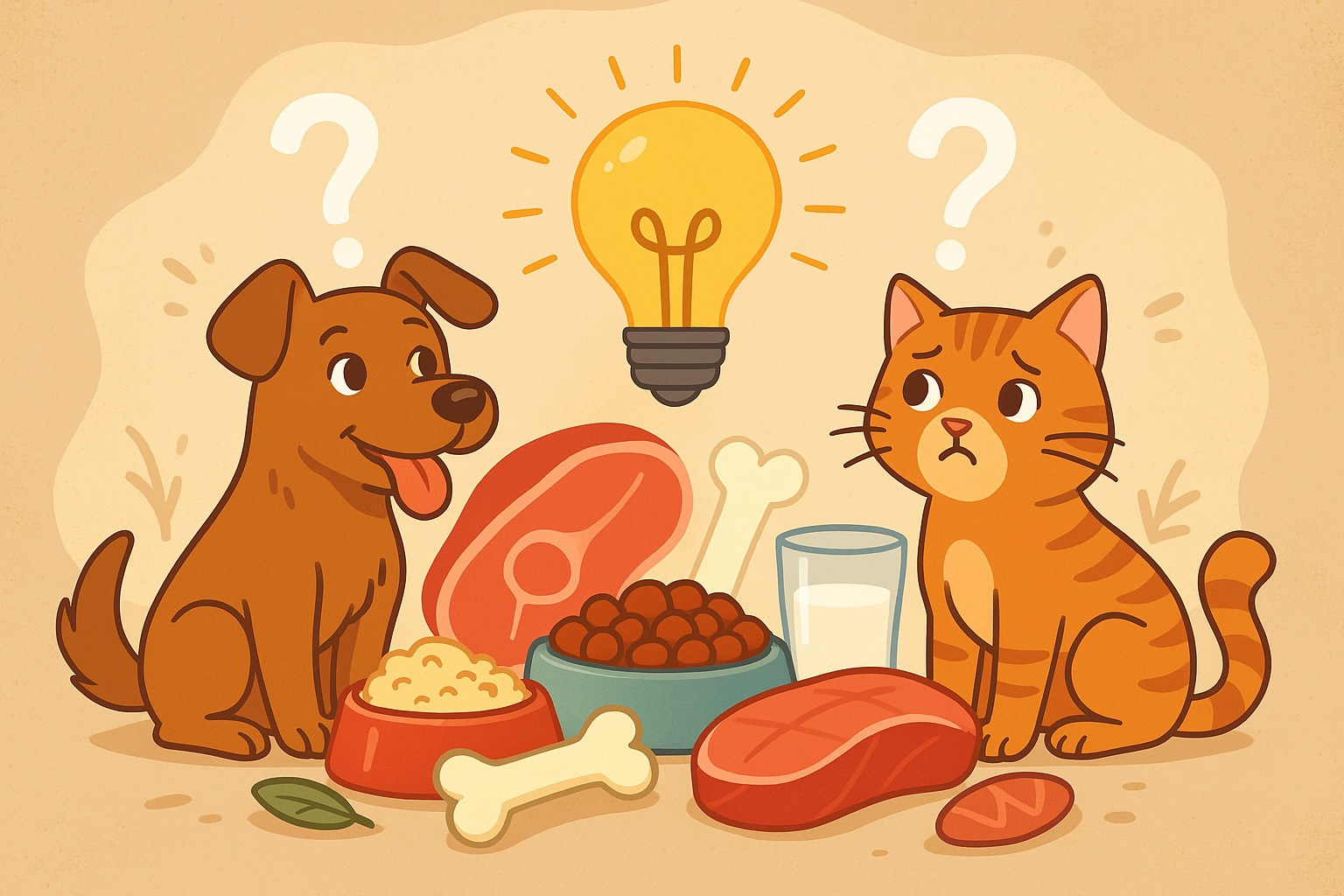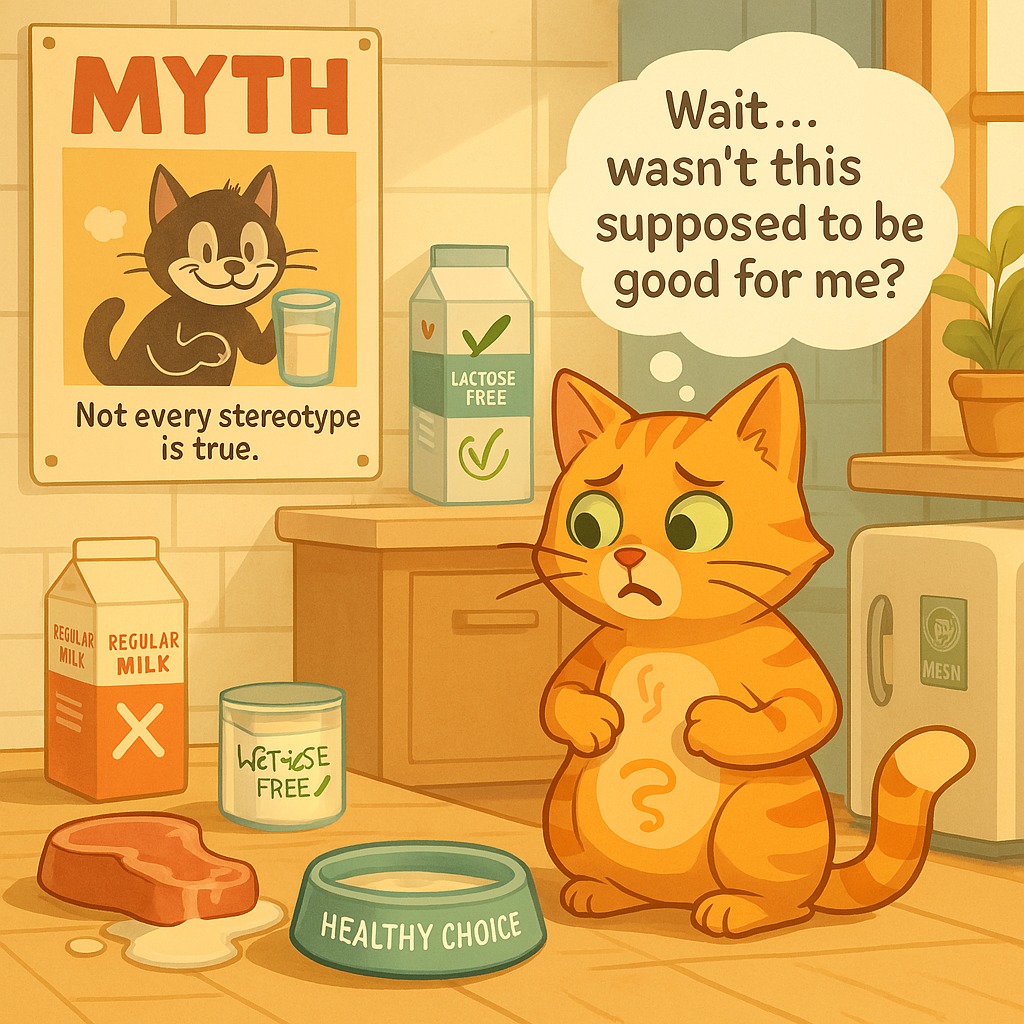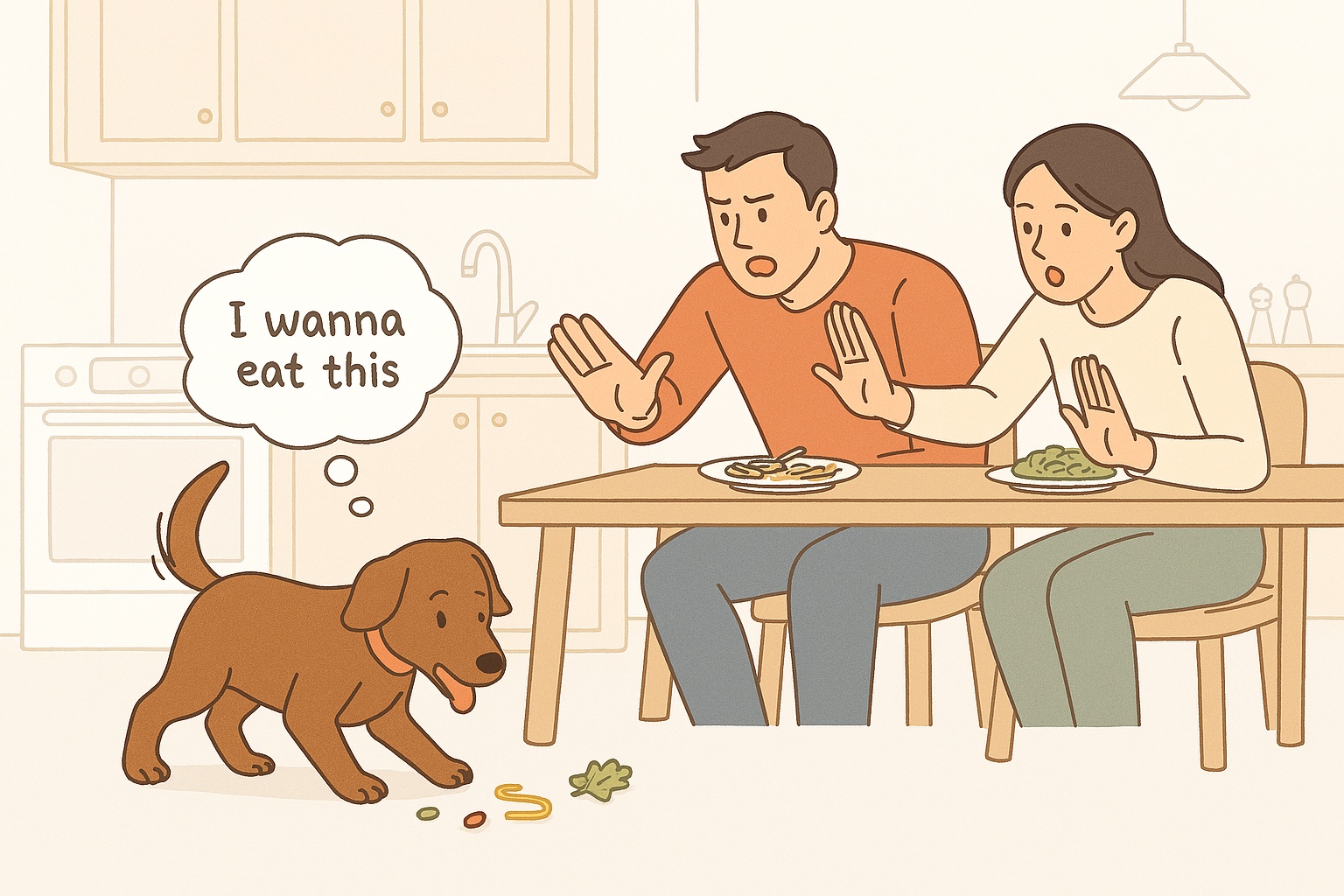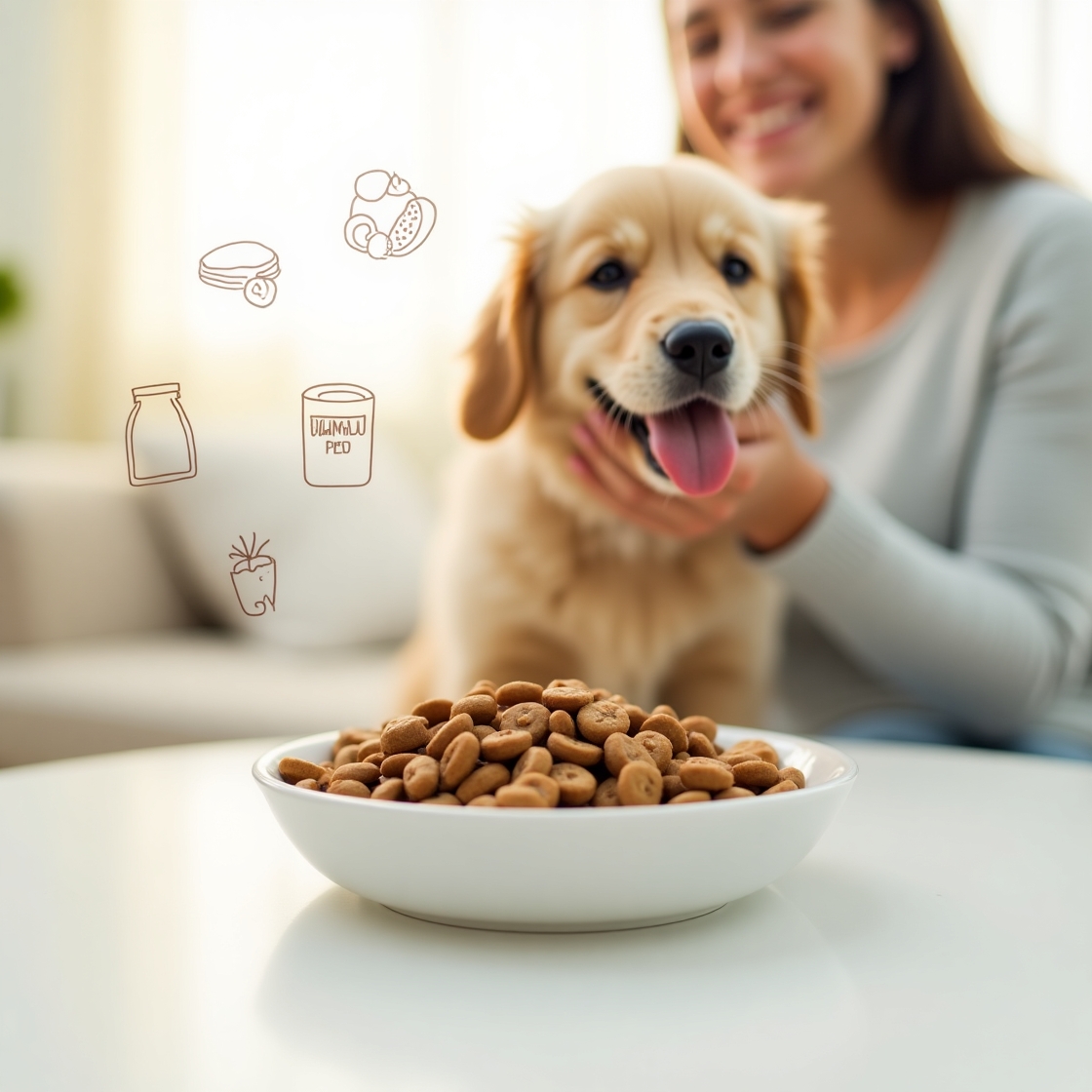As pet parents, we all want the best for our furry (or feathered or scaly) family members. But let’s face it, there’s a lot of outdated advice and misinformation. From your grandma swearing that “Dogs love bones ” to cartoons convincing us that cats can’t function without a saucer of milk, these myths can do more harm than good. So, let’s roll up our sleeves, grab a treat (for you or your pet – no judgment) and bust some common pet diet myths with science and a sprinkle of fun!


Myth 1: All Dogs Can Eat Bones?
− The Reality: Not all bones are created equal and feeding your dog the wrong type can lead to serious health issues. Cooked bones, for example, can splinter and cause choking, blockages or even tears in your dog’s digestive tract. Ouch!
− Why This Myth Exists: Dogs’ wild ancestors gnawed on raw bones for food and nutrients. However, domestic dogs are not wolves (no matter how much your Husky howls at night).
− The Science Says: Raw meaty bones (like beef knuckles) can be okay for some dogs when supervised, but cooked bones are a no-go. Better alternatives include dental chews, rubber toys or even specially designed bone treats that satisfy their chewing instincts without the risk.
Myth 2: Cats Should Drink Milk?
− The Reality: Even though cartoons always show cats drinking milk, most adult cats are actually lactose intolerant. Giving them milk can lead to tummy troubles including diarrhea and gas and let’s be honest, nobody wants to deal with a gassy cat.
− Why This Myth Exists: Back in the day, barn cats would drink milk straight from the cow. Over time, it became a cultural trope.
− The Science Says: Digestive systems of cats aren’t equipped to process lactose after weaning. If you want to spoil your kitty, stick to water (yes, they need it even if they act like they don’t) or vet-approved, lactose-free cat milk.

Myth 3: Raw Diets Are Always Healthier?
− The Reality: While raw diets can work for some pets, they’re not universally better for all pets. They require careful preparation to avoid contamination and ensure balanced nutrition.
− Why This Myth Exists: Advocates claim raw diets mimic what wild animals eat. But remember, your pampered Labrador isn’t exactly a wild wolf anymore.
− The Science Says: Raw meat can harbor bacteria like Salmonella or E. coli, which can harm both pets and humans. If you’re considering a raw diet, consult your vet to make sure you’re doing it safely.
Myth 4: Dogs Should Only Eat Meat?
− The Reality: Dogs are omnivores, not carnivores. This means they thrive on a diet that primarily consists of meat, along with vegetables, fruits and grains.
− Why This Myth Exists: Wolf ancestors of dogs were primarily meat-eaters, so it seems logical to assume our pups would follow suit.
− The Science Says: A balanced diet with a mix of protein, carbs and fats is key. Safe veggies like carrots, green beans and sweet potatoes can be great additions to their meals. Just don’t let them near onions or garlic – as these can be toxic to pets!

Myth 5: Table Scraps Are Fine as Treats?
− The Reality: While your dog may beg with Oscar worthy drama, many human foods are unsafe for pets. Chocolate, grapes and onions are just the tip of the iceberg.
− Why This Myth Exists: “If it’s safe for humans, it’s safe for pets” People often believe that since they’re eating the food themselves, it must be okay for their pets too.
− The Science Says: Stick to pet-safe treats and save your leftovers for yourself. If you want to share, give plain cooked chicken or a small piece of apple (without seeds).
Healthier Alternatives for Happy, Healthy Pets:
If these myths have you rethinking your pet’s diet, here’s a quick cheat sheet for healthier options:
− For Dogs: Carrots, blueberries, plain boiled chicken or vet-approved dental chews.
− For Cats: Cooked fish (in moderation), cat grass or specially formulated cat treats.
− For Exotic Pets: Consult your vet for species-specific guidelines as needs vary widely.
Takeaway
When it comes to pet nutrition, knowledge is power. Don’t rely on myths or outdated advice; instead, consult your vet and focus on balanced, species-appropriate diets. Your pets trust you to make the best choices for them and now you can do it so, without myths! So, the next time someone tells you to give your dog a bone or your cat a bowl of milk, feel free to bust that myth like the responsible, science-savvy pet parent you are. After all, a healthy pet is a happy pet and that’s what it’s all about!
This blog post is brought to you by Health Files, your trusted platform for managing and organizing your health records. Visit us at Hfiles to securely store, access, share and track your medical documents with ease.


